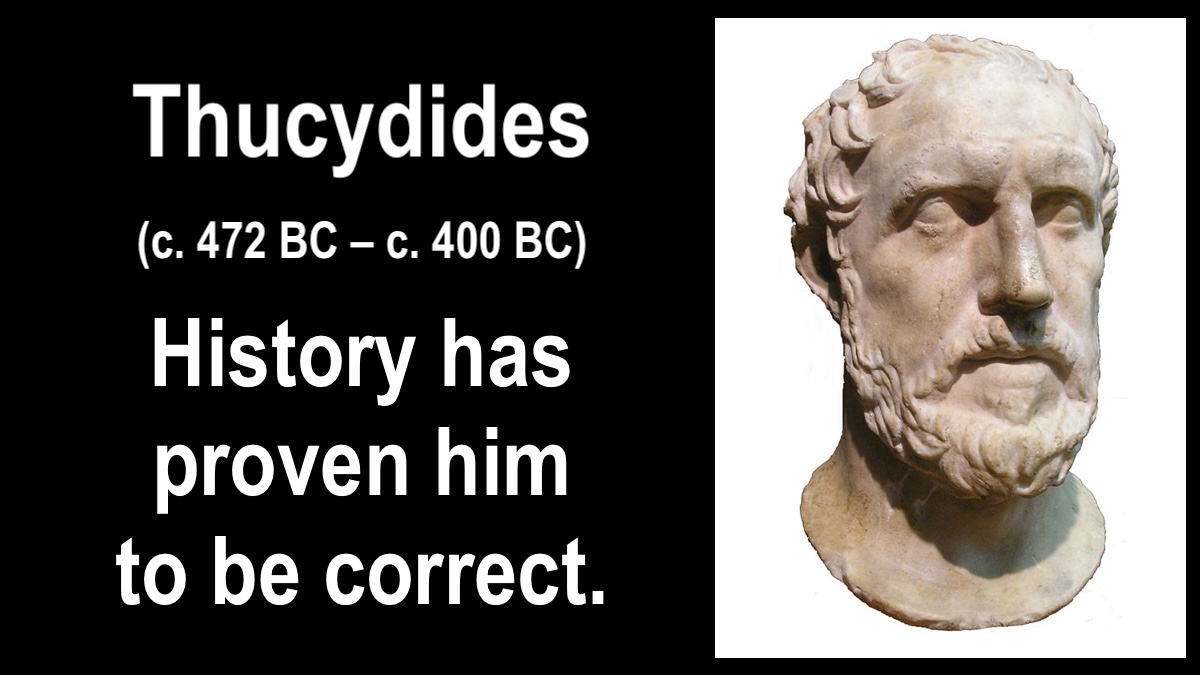What happens when AGI/ASI becomes immensely powerful and takes control of our world?
Q: Is the future certainly unpredictable? A: Not so much…
Thucydides
Thucydides (or Thoukydides)(c. 472 BC – c. 400 BC) was an ancient Greek historian, author of the History of the Peloponnesian War, which recounts the 5th century BC war between Sparta and Athens. This work is widely regarded a classic and represents the first work of its kind.
- “We hope that you, instead of thinking to influence us by saying that you did not join the Lacedaemonians, although their colonists, or that you have done us no wrong, will aim at what is feasible, holding in view the real sentiments of us both; since you know as well as we do that right, as the world goes, is only in question between equals in power, while the strong do what they can and the weak suffer what they must.
- A summary of Athenian statements to the Melians, Book V, 5.89-[1]
For example:
The siege of Melos occurred in 416 BC during the Peloponnesian War, which was a war fought between Athens and Sparta. Melos is an island in the Aegean Sea roughly 110 kilometres (68 miles) east of mainland Greece. Though the Melians had ancestral ties to Sparta, they were neutral in the war. Athens invaded Melos in the summer of 416 BC and demanded that the Melians surrender and pay tribute to Athens or face annihilation. The Melians refused, so the Athenians laid siege to their city. Melos surrendered in the winter, and the Athenians executed the men of Melos and enslaved the women and children.
This siege is best remembered for the Melian Dialogue, a dramatization of the negotiations between the Athenians and the Melians before the siege, written by the classical Athenian historian Thucydides. In the negotiations, the Athenians offered no moral justification for their invasion, but instead bluntly told the Melians that Athens needed Melos for its own ends and that the only thing Melians stood to gain in submitting without a fight was self-preservation. It is taught as a classic case study in political realism to illustrate that selfish and pragmatic concerns motivate a country at war.[1]


